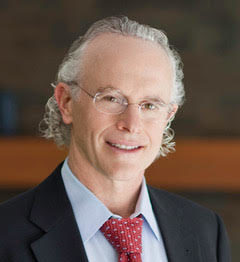
New figures from the Centers for Disease Control and Prevention show that less than 15% of COVID-19 vaccine doses distributed to long-term care facilities through the federal program have actually been administered to residents and employees.
The CDC updated the figures Monday morning, which showed that about 2.5 million doses have been sent out through the federal government’s Pharmacy Partnership for Long-Term Care Program with CVS Health and Walgreens. Of those 2.5 million doses, only about 365,000 people living and working in long-term care facilities have received their first vaccine dose.
The data on how many people in long-term care that are getting vaccinated is “absolutely unconscionable,” said Michael Wasserman, M.D., a geriatrician and past president of the California Association for Long Term Care Medicine.
“Everything that has gone wrong is being multiplied right now. We need to take a breath for like a day and figure out how to reposition this and make it work more effectively,” he told McKnight’s Long-Term Care News on Monday.
Wasserman laid out several steps for federal, state and local health officials, along with CVS and Walgreens, to take in order to address the delays in getting faster vaccinations in long-term care.
He stressed the need for CVS and Walgreens to engage with long-term care experts in order to ensure the vaccine program’s implementation is “facility- , resident- and staff-centered” rather than “CVS- and Walgreens-centered.” He explained that means that the companies must build bridges with other long-term care pharmacies in order to do so.
He also said it’s crucial for the federal government to utilize pharmacy partnerships already in place at nursing homes. LTC pharmacists have stressed the need for their involvement in the vaccine process. The federal government in November announced a partnership with independent community pharmacies, including long-term care pharmacies, for coronavirus vaccine distribution.
“Let’s figure out how to activate them and let them help. Let the consultant pharmacists that every nursing home has get involved,” he stressed.
Wasserman also said the issue of consent must be made easier so that “residents and staff are not spending an inordinate amount of valuable time dealing with the consent form once the vaccine arrives.”
Wasserman added that obstacles in this process are a part of pushing reductions in vaccine confidence.
“If we don’t come up with solutions, all of the things we are struggling with are going to get worse. Outbreaks are going to get worse, the deaths are getting worse. We need decisive action to get people vaccinated,” he said.
“Everything we can do to make the process smoother will improve vaccine confidence,” he said. “Looking at the frontline staff, in order to improve vaccine confidence, we must respect, honor and value them. If we don’t do that, we do all of ourselves a disservice,” he added.





